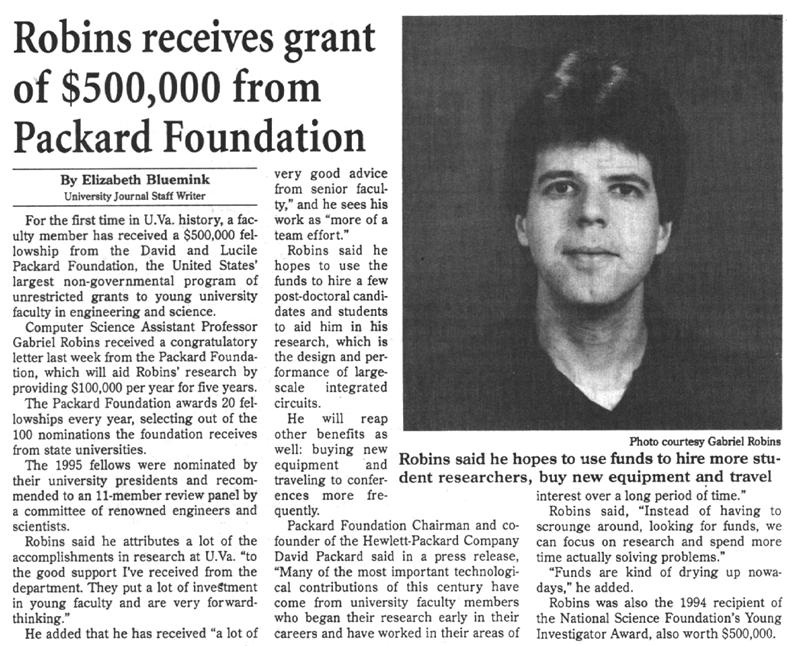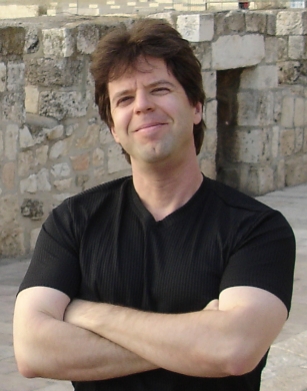Robins Receives Grant of $500K from Packard Foundation
University Journal
Vol. XVIII, No. 30
October 13, 1995
By Elizabeth Bluemink
For the first time in U.Va. history, a faculty member has received a
$500,000 fellowship from the David
and Lucile Packard Foundation, the United States' largest
non-governmental program of unrestricted grants to young university
faculty in engineering and science.
Computer Science Assistant
Professor Gabriel
Robins received a congratulatory letter last week from the Packard
Foundation, which will aid Robins' research by providing $100,000 per
year for five years.
The Packard Foundation awards 20 fellowships every year, selecting out
of the 100 nominations the foundation receives from state
universities.
The 1995 fellows were nominated by their university presidents and
recommended to an 11-member review panel by a committee of renowned
engineers and scientists.
Robins said he attributes a lot of the accomplishments in research at
U.Va. "to the good support I've received from the
department. They put a lot of investment in young faculty and are
very forward-thinking."
He added that he has received "a lot of very good advice from senior
faculty" and he sees his work as "more of a team effort."
Robins said he hopes to use the funds to hire a few post-doctoral
candidates and students to aid him in his research, which is the
design and performance of large-scale integrated circuits.
He will reap other benefits as well: buying new equipment and
traveling to conferences more frequently.
Packard Foundation Chairman and cofounder of the Hewlett-Packard
Company David
Packard said in a press release, "Many of the most important
technological contributions of this century have come from university
faculty members who began their research early in their careers and
have worked in their areas of interest over a long period of
time."
Robins said, "Instead of having to scrounge around, looking for
funds, we can focus on research and spend more time actually solving
problems."
"Funds are kind of drying up nowadays," he added.
Robins was also the 1994 recipient of the National Science Foundation's Young
Investigator Award, also worth $500,000.
Original scanned article:

Return to Gabriel Robins' home page

